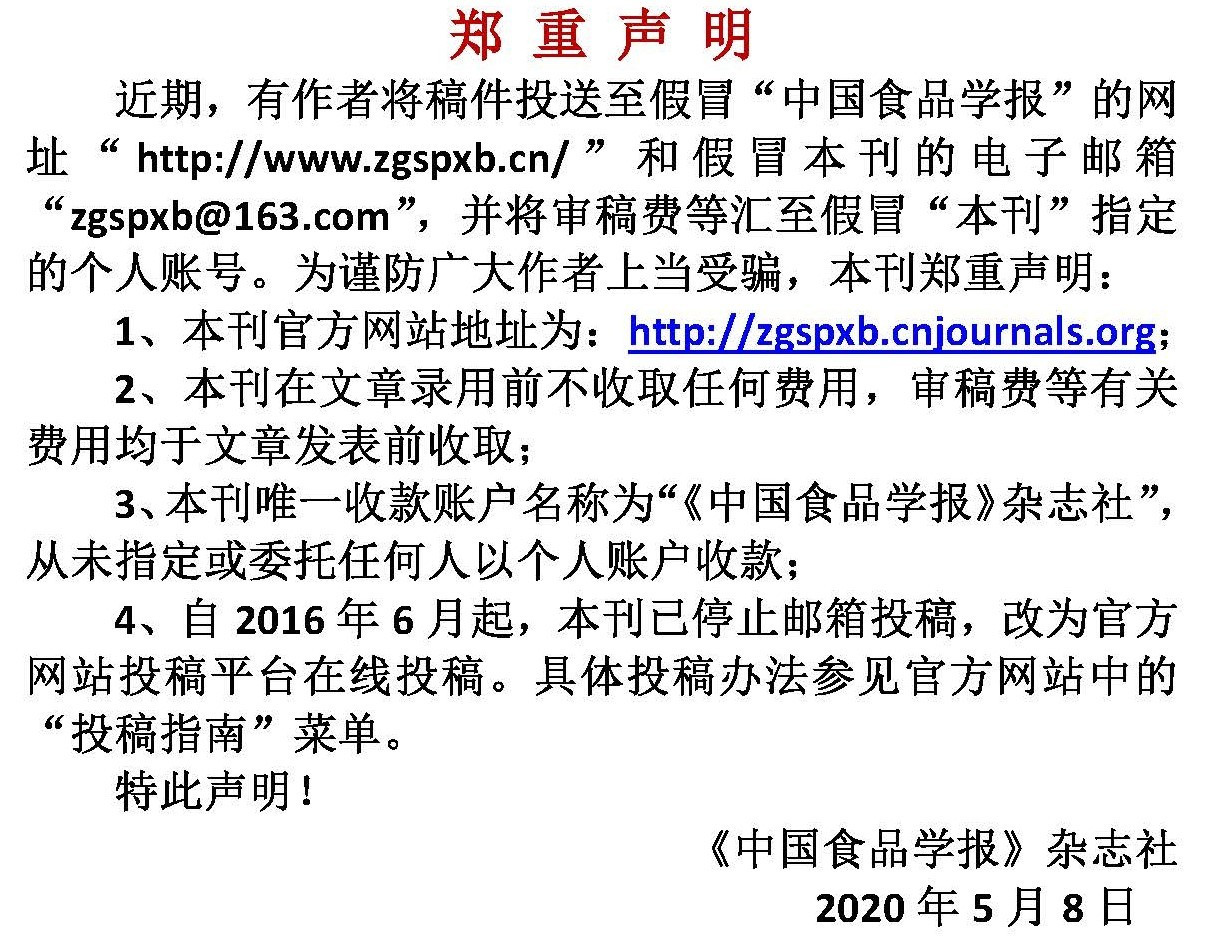外源蛋白改良剂对米面团热力学性能及面包品质的影响
作者:
作者单位:
(哈尔滨商业大学食品工程学院 哈尔滨 150028)
作者简介:
通讯作者:
中图分类号:
基金项目:
国家重点研发计划项目(2023YFD2100803);
Effect of Exogenous Protein Conditioner on the Thermodynamic Properties of Rice Dough and Bread Quality
Author:
Affiliation:
(College of Food Engineering, Harbin University of Commerce, Harbin 150028)
Fund Project:
引用本文
孙司卉,杨杨,任丽琨,徐悦,边鑫,张娜.外源蛋白改良剂对米面团热力学性能及面包品质的影响[J].中国食品学报,2024,24(3):149-161
复制分享
文章指标
- 点击次数:
- 下载次数:
- HTML阅读次数:
历史
- 收稿日期:2023-03-25
- 最后修改日期:
- 录用日期:
- 在线发布日期: 2024-04-16
- 出版日期:
文章二维码

版权所有 :《中国食品学报》杂志社 京ICP备09084417号-4
地址 :北京市海淀区阜成路北三街8号9层 邮政编码 :100048
电话 :010-65223596 65265375 电子邮箱 :chinaspxb@vip.163.com
技术支持:北京勤云科技发展有限公司
地址 :北京市海淀区阜成路北三街8号9层 邮政编码 :100048
电话 :010-65223596 65265375 电子邮箱 :chinaspxb@vip.163.com
技术支持:北京勤云科技发展有限公司
